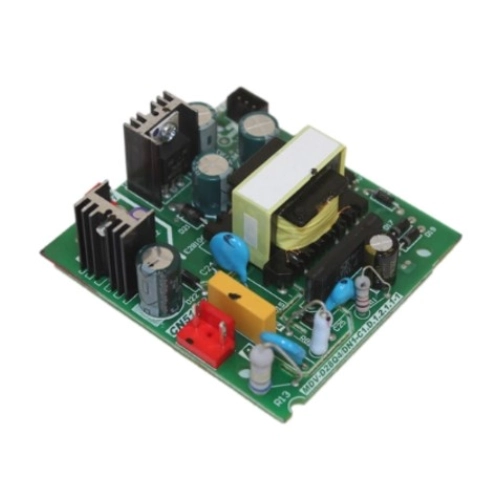
Contents
Introduction
Chiller control boards are integral components of industrial cooling systems, responsible for managing and optimizing the performance of chillers. These advanced control systems ensure efficient operation, energy savings, and system longevity. In this comprehensive guide, we will explore the intricacies of chiller control boards, their functions, types, and the latest advancements in the field.
Technical Specifications
Overview of Chiller Control Boards
Chiller control boards are electronic devices that regulate the operation of chillers. They monitor various parameters such as temperature, pressure, and flow rates to ensure optimal performance.
Key Components
- Microcontrollers: Central processing units that execute control algorithms.
- Sensors: Devices that measure temperature, pressure, and flow.
- Relays and Contactors: Switches that control the operation of compressors and fans.
- Communication Modules: Interfaces for network connectivity and remote monitoring.
Connectivity and Integration
Modern chiller control boards often include Ethernet, Modbus, and BACnet protocols for seamless integration with building management systems (BMS).
Power Requirements
Typically, control boards operate on low-voltage DC power, derived from the main chiller power supply.
Applications
Industrial Cooling
Chiller control boards are widely used in manufacturing plants to maintain optimal operating temperatures for machinery and processes.
Commercial Buildings
In large office buildings, control boards ensure efficient climate control, contributing to energy savings and occupant comfort.
Data Centers
Control boards manage cooling systems critical to maintaining the operational integrity of data centers.
Healthcare Facilities
Hospitals and laboratories rely on precise temperature control for both patient comfort and the proper storage of sensitive materials.
Benefits
Improved Efficiency
By optimizing chiller performance, control boards reduce energy consumption and operational costs.
Enhanced Reliability
Advanced diagnostics and monitoring capabilities help prevent system failures and extend the lifespan of equipment.
Remote Monitoring
Integration with BMS allows for real-time monitoring and control, enabling quick responses to potential issues.
Customization and Scalability
Modern control boards offer customizable settings and are scalable to meet the demands of various applications, from small commercial units to large industrial systems.
Challenges and Limitations
Initial Costs
The upfront investment in advanced control systems can be significant, though it is often offset by long-term savings.
Technical Complexity
Proper installation and maintenance require specialized knowledge and training.
Compatibility Issues
Integrating new control boards with existing systems can pose challenges, particularly in older facilities.
Latest Innovations
AI and Machine Learning
AI-driven control algorithms can predict and adapt to changing conditions, further enhancing efficiency and reliability.
IoT Integration
The Internet of Things (IoT) enables more sophisticated monitoring and control, facilitating predictive maintenance and real-time adjustments.
Enhanced User Interfaces
Newer control boards feature intuitive touchscreens and mobile apps for easier operation and monitoring.
Future Prospects
Greater Automation
The trend towards automation will continue, with control boards becoming increasingly autonomous in their operation.
Green Technology
Sustainability initiatives will drive the development of control boards that support eco-friendly refrigerants and energy-saving technologies.
Advanced Diagnostics
Future control boards will likely offer even more sophisticated diagnostics, capable of identifying and addressing potential issues before they impact system performance.
Comparative Analysis
Traditional vs. Modern Control Boards
Traditional control boards often lack the advanced features and connectivity options of modern systems. While they may be more straightforward and cost-effective initially, modern control boards offer significant long-term benefits in terms of efficiency and reliability.
Leading Brands
- Carrier: Known for robust and reliable systems.
- Trane: Offers innovative and energy-efficient solutions.
- Johnson Controls: Integrates seamlessly with comprehensive building management systems.
User Guides or Tutorials
Installation Steps
- Preparation: Ensure all components and tools are ready.
- Mounting: Secure the control board in the designated location.
- Wiring: Connect sensors, power supply, and communication interfaces.
- Configuration: Program the control board with the necessary settings.
- Testing: Verify the system operates correctly.
Maintenance Tips
- Regular Inspections: Check connections and components periodically.
- Software Updates: Keep firmware updated to benefit from the latest features and improvements.
- Cleaning: Ensure the control board and sensors are free from dust and debris.
Conclusion
Chiller control boards are essential for the efficient and reliable operation of industrial cooling systems. As technology advances, these systems will continue to evolve, offering even greater benefits in terms of efficiency, reliability, and sustainability. Investing in a modern chiller control board can significantly enhance the performance and longevity of your cooling system, ultimately leading to substantial cost savings and improved operational outcomes.